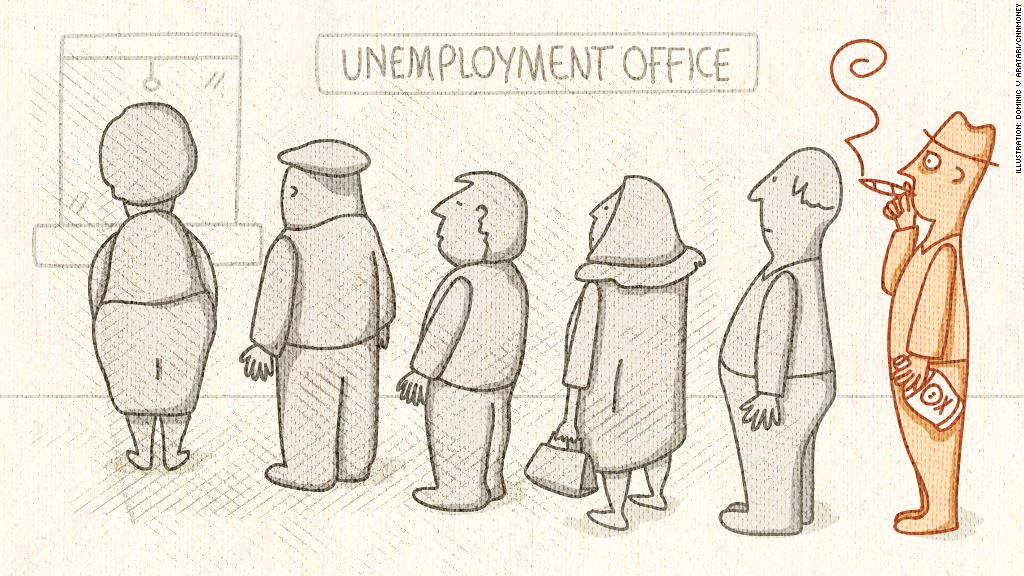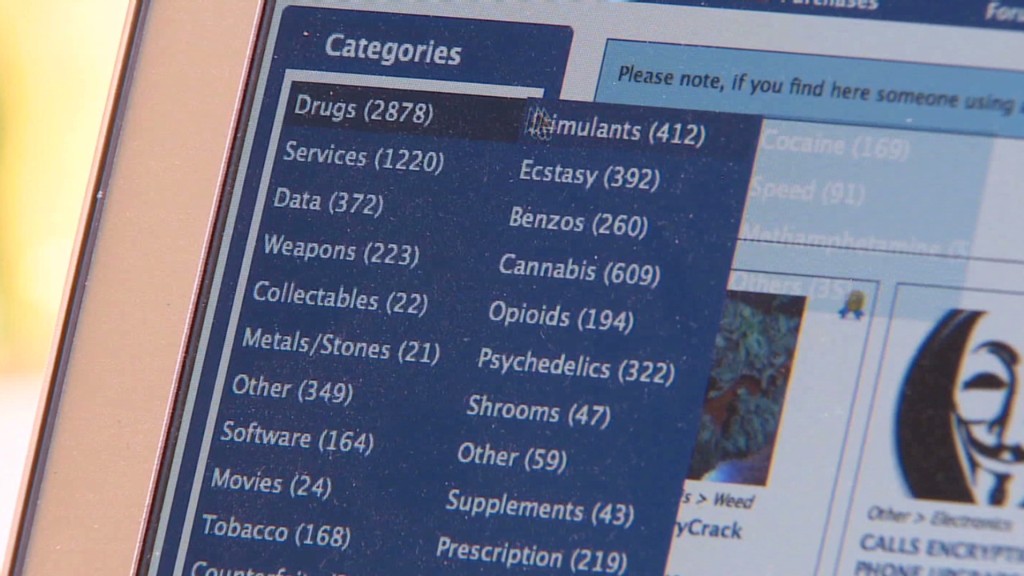
About 1 in 6 unemployed workers are addicted to alcohol or drugs -- almost twice the rate for full-time workers, according to the government's National Survey on Drug Use and Health.
The survey shows that 17% of unemployed workers had a substance abuse disorder last year, whereas 9% of full-time workers did so. The numbers are self-reported, and therefore, could be even higher in reality.
Substance dependence is defined by several factors, including having withdrawals, repeatedly using a substance over the course of one month and witnessing related adverse effects at home, work or school. Addictions to alcohol, illegal drugs and misused prescription drugs are all included.
So are people unemployed because of their drug and alcohol use? Or do long bouts of unemployment lead people to substance abuse?
Some evidence could point to the latter, according to research from St. Louis Fed economists Alejandro Badel and Brian Greaney.
The trends for drug use have held relatively steady for a decade, even in spite of the recession. One would think that as millions of clean workers suddenly lost their jobs and joined the unemployment rolls, the rate of drug use among that group should have fallen pretty dramatically. Instead, it barely changed.
Related: Inside Silk Road's drug market, U.S. pot and cocaine are cheap
Badel and Greaney say the data aren't completely conclusive, but the results could be consistent with the idea that previously drug-free workers could have turned to drugs after losing their jobs.
"During episodes of large increases in unemployment, the number of drug users can increase dramatically," their paper reads.
Another study, conducted by University of Miami sociologist Michael French and Nova Southeastern University economist Ioana Popovici, came to a similar conclusion about alcohol.
As people become unemployed, they're faced with competing challenges, French says: On one hand, their income falls and they're less able to afford alcohol or drugs. But at the same time, they're faced with more idle time to fill with recreational activities.
As it turns out, the loss in income isn't enough to stop them from drowning out their sorrows with alcohol.
"Among those who are unemployed, the leisure effect is dominating the income effect," French said. "We find that when the unemployment rate increases, all else equal, drinking increases."
Share your story: What's your biggest job search mistake?
It's not just the unemployed who are indulging. A surprising number of addicts are employed.
About 21 million American adults were dependent on alcohol or drugs in 2012, the highest number on record, according to the government's data. Half of them had full-time jobs.
Among them, alcoholism is the most common form of substance abuse.
But taking alcohol out of the mix, about 40% of people who are addicted to illicit drugs like marijuana, cocaine and heroine, are holding down full-time jobs too.
Casual use of illegal drugs is also fairly common among full-time workers. About 9% of workers used at least one illicit drug in the prior month, when the survey was conducted in 2012.
Slightly older government data -- from 2002 to 2004 -- shows casual drug use tends to be most common among workers in food service, construction and creative industries like arts, design, entertainment and media.

Workers in security, education and legal professions are least likely to have used an illicit drug.
"Drug use cuts across all employment groups," French said. "It's remained relatively constant over the last 10 years, and despite all our efforts (every president has a war on drugs) we're not making a lot of progress in that area."


